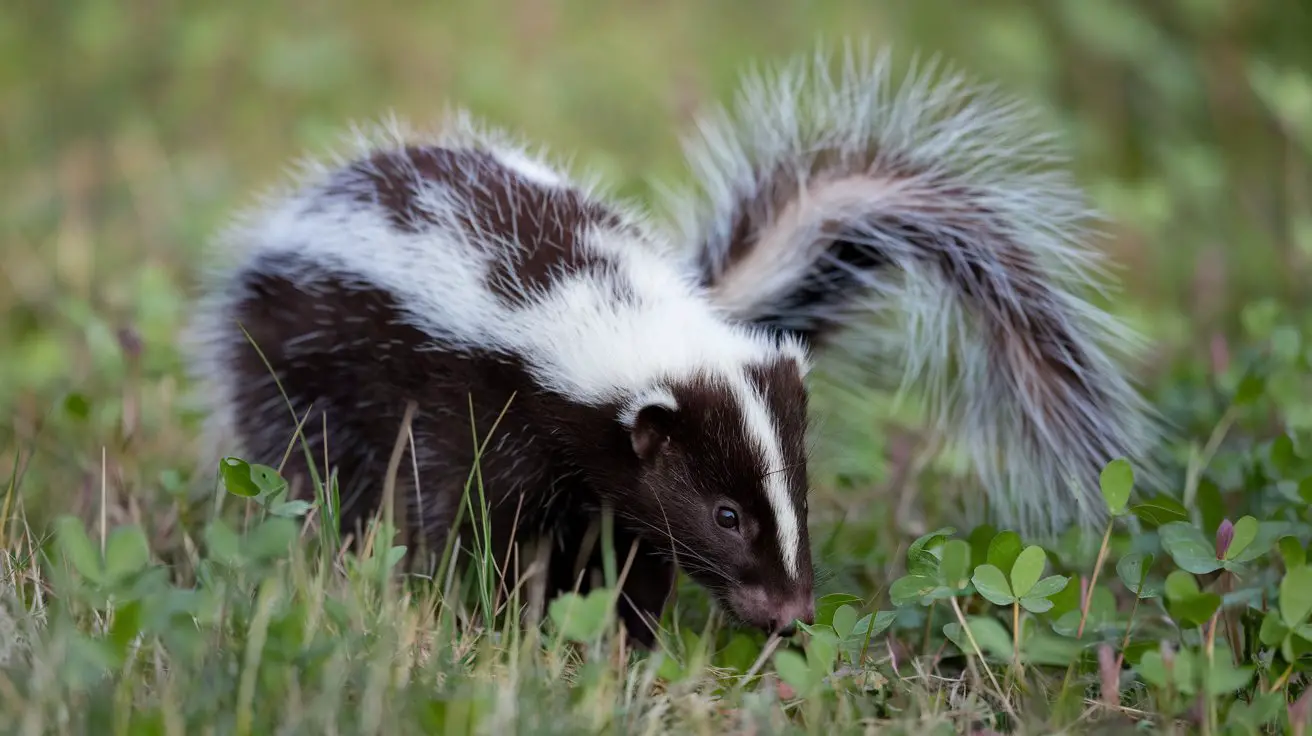Do Skunks Eat Clover?
Skunks are fascinating creatures known for their distinctive appearance and their ability to spray a foul-smelling liquid as a defense mechanism. Beyond these well-known traits, skunks have interesting dietary habits that play a crucial role in the ecosystems they inhabit. One common question that arises is whether skunks eat clover. This article delves into the details of skunk diets, specifically addressing their consumption of clover, and provides insights into how this affects gardens and wild habitats.
What Do Skunks Typically Eat?
Skunks are omnivores, meaning they consume both animal and plant matter. Their diet is quite varied and adjusts based on the season and food availability.
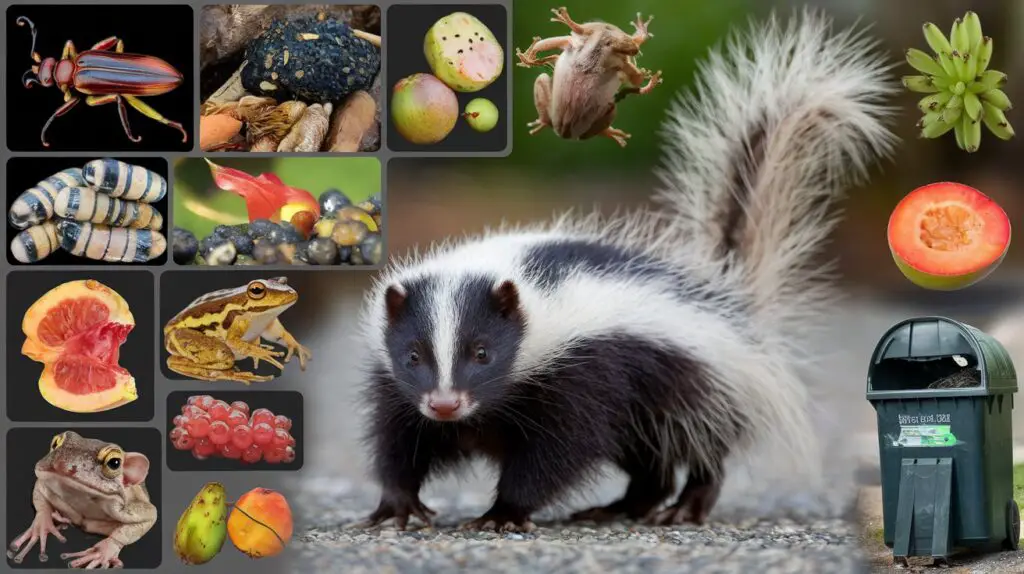
Key Dietary Components:
- Insects: Skunks frequently feed on beetles, grubs, and worms. They are known to dig in the soil to find these protein-rich foods.
- Small Animals: They hunt small creatures such as frogs, lizards, and rodents, which provide essential nutrients.
- Fruits and Plants: Berries, roots, and leaves are part of their diet, especially when insects and small animals are less abundant.
- Human Scraps in Urban Areas: In cities, skunks may scavenge from garbage bins, consuming leftover food discarded by humans.
This adaptability in their diet allows skunks to thrive in a variety of environments, from rural areas to urban settings.
Do Skunks Eat Clover Specifically?
The primary question is whether skunks include clover in their diet. The answer is yes; skunks do eat clover, though it is not a major component of their diet.
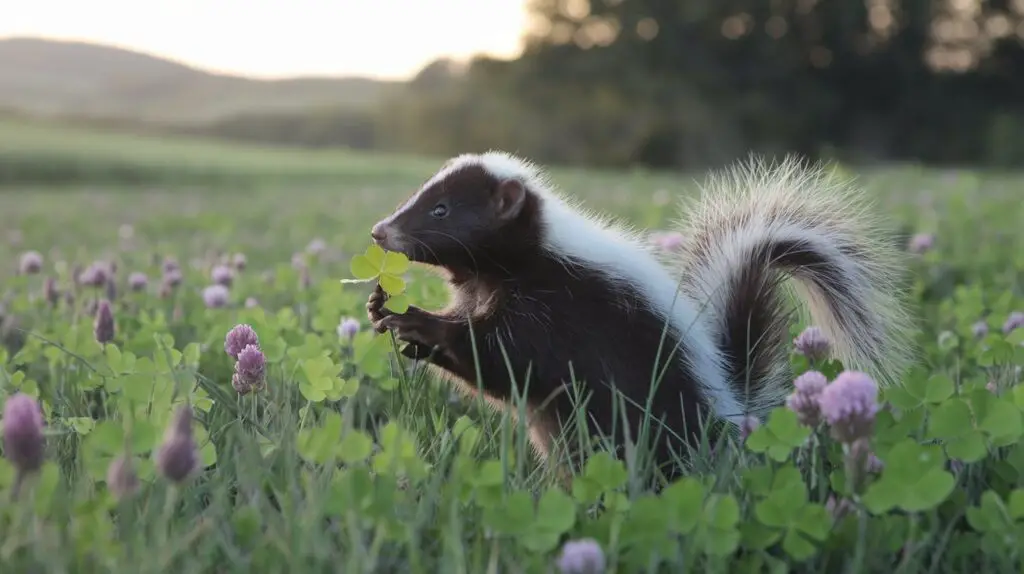
When Skunks Eat Clover:
- Availability in Habitat: If clover is readily available in their environment, skunks may consume it during their foraging activities.
- Seasonal Abundance: During the spring and summer months, clover grows abundantly, making it an accessible food source.
- Supplementary Food Source: Skunks may turn to clover when their preferred prey is scarce, using it to supplement their nutritional needs.
While clover isn’t a staple for skunks, it serves as an additional resource that they utilize when necessary.
Why Would Skunks Eat Clover?
Understanding why skunks eat clover involves looking at the benefits and circumstances that lead them to consume this plant.
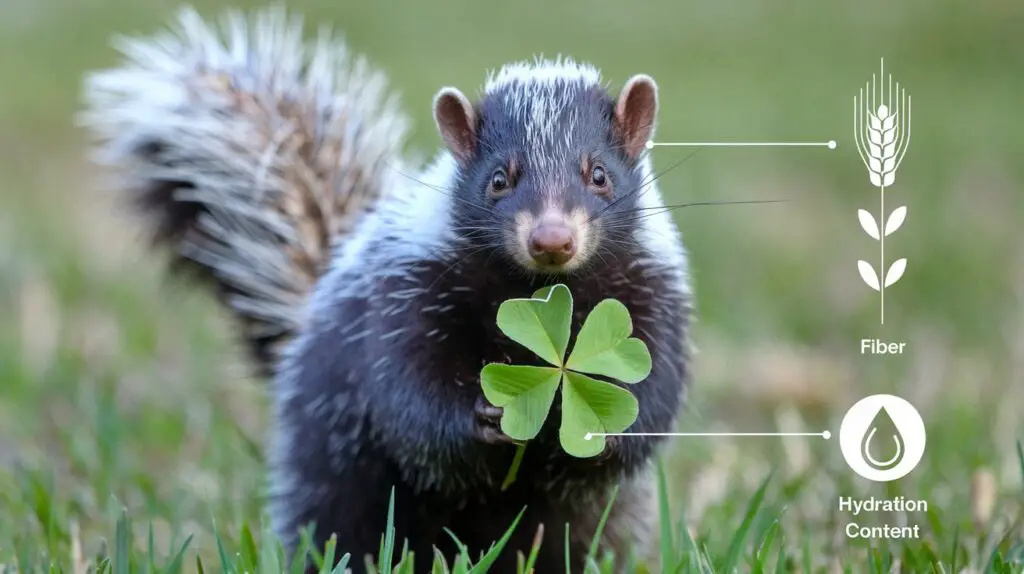
Reasons for Clover Consumption:
- Nutritional Supplement: Clover provides fiber and moisture, aiding in digestion and hydration.
- Easy Accessibility: It’s commonly found in yards, fields, and wild habitats, making it an easy option during foraging.
- Diet Diversification: Including plants like clover helps skunks maintain a balanced diet, especially when animal prey is limited.
By incorporating clover into their diet, skunks can meet their nutritional requirements more effectively.
How Do Skunks Impact Clover in Gardens?
For those who cultivate gardens, the presence of skunks might raise concerns about potential damage to plants, including clover.
Behavioral Insights:
- Skunks are generally not destructive to vegetation. They tend to dig small holes in search of insects rather than uprooting plants.
- When consuming clover, they usually nibble on the leaves without causing significant harm.
Garden Impacts:
- Pest Control Benefits: By feeding on insects and grubs that can damage plants, skunks can actually benefit gardens.
- Minimal Plant Damage: Any consumption of clover or other plants is typically minimal and doesn’t pose a serious threat to garden health.
In most cases, the presence of skunks in a garden can be more beneficial than harmful.
Observing Skunks and Clover in the Wild
For wildlife enthusiasts, observing skunks can provide valuable insights into their behaviors and their role in the ecosystem.
Best Practices:
- Identify Foraging Patterns: Skunks are mostly active during dusk and dawn. Observing them during these times increases the chances of sighting.
- Track Seasonal Eating Habits: Noting how their diet changes with the seasons can offer a deeper understanding of their feeding behavior.
Tips for Wildlife Observation:
- Use Motion-Sensing Cameras: Setting up cameras allows for monitoring skunk activity without disturbing them.
- Note Surrounding Vegetation: Keeping track of plants like clover in the area can help explain skunk presence and feeding patterns.
Always maintain a safe distance to avoid startling skunks, as they may spray when threatened.
How to Protect Clover from Skunks (If Needed)
While skunks typically don’t cause significant harm to clover, some gardeners may prefer to deter them from their property.
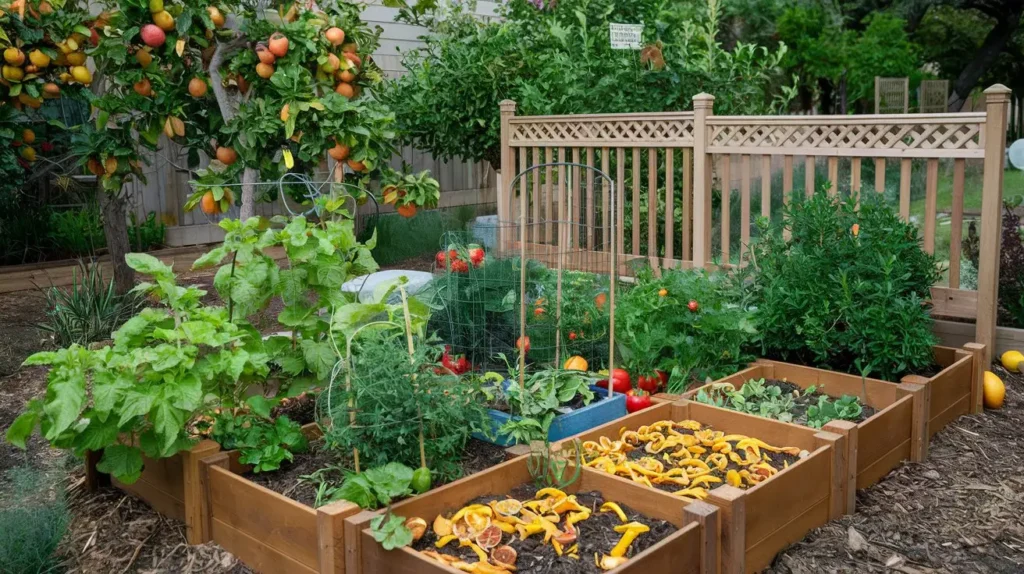
Preventive Measures:
- Secure Trash Bins: Properly sealing garbage cans reduces attractants that may draw skunks into residential areas.
- Use Fencing or Repellents: Installing barriers or applying natural repellents can discourage skunks from entering gardens.
Non-Harmful Deterrents:
- Motion-Activated Lights: Sudden illumination can startle skunks and encourage them to avoid certain areas.
- Natural Repellents: Strong scents like citrus peels or peppermint oil can deter skunks without causing them harm.
Implementing these measures can help protect gardens while coexisting peacefully with local wildlife.
Related Questions About Skunks’ Diet
- Do Skunks Eat Other Plants? Yes, skunks consume various plants, including berries, roots, and leaves, as part of their omnivorous diet.
- How Does Location Influence a Skunk’s Diet? Urban skunks may rely more on human food waste, while rural skunks have access to a wider range of natural food sources.
- Can Clover Attract Other Wildlife? Clover can attract bees, rabbits, and other herbivores due to its nutritious qualities.
Understanding these aspects can help gardeners and wildlife observers make informed decisions about managing their outdoor spaces.
Fun Facts About Skunks and Diets
- Adaptable Eaters: Skunks adjust their diet based on what is available, which helps them survive in diverse environments.
- Digestive Efficiency: Their digestive systems are capable of processing a wide range of foods, from insects to fruits.
- Ecological Role: Skunks contribute to controlling pest populations and aid in seed dispersal through their consumption of fruits.
These facts highlight the importance of skunks in maintaining ecological balance and underscore their role as valuable members of the ecosystem.

